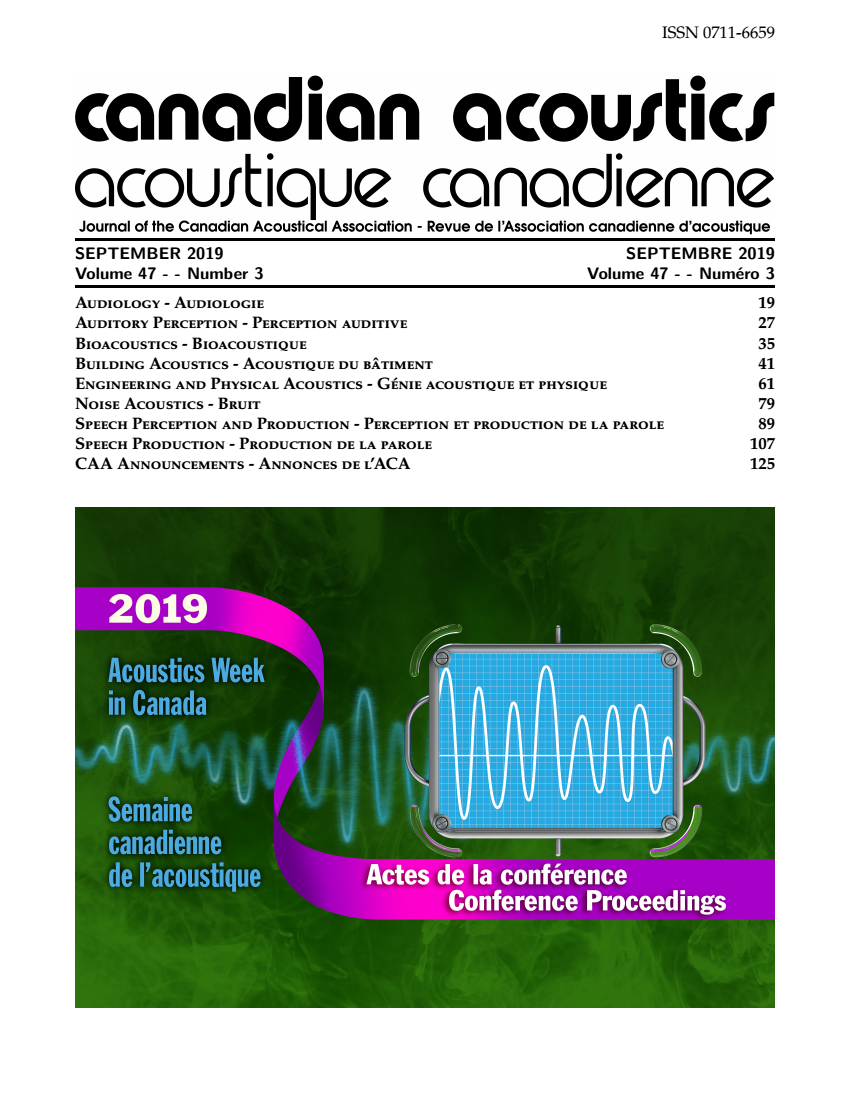Investigation of Aircrew Noise Exposure Due to The Use of The Intercom system Onboard The RCAF CH-149 Helicopter
Résumé
The National Research Council (NRC) Flight Research Laboratory (FRL) conducted a series of intercom signal voltage measurements on several CH-149 aircraft at RCAF Comox CFB in March 2019. The purpose of this test campaign and reporting was to support the Department of National Defence (DND) in investigating several issues related to the intercom system such as: multiple types of squelches reported by aircrew as well as to quantify the aircrew noise exposure levels due to the use of the CH-149 intercom system.
Spectral analysis of the CH-149 intercom voice signal indicated the presence of high squelch noise levels and multiple tonal frequency peaks. Different types of squelch were analyzed and similarities as well as differences were discussed.
Further analysis of the voice communication signals showed that the CH-149 intercom system was the source of significant noise amplitude levels during squelch events. The CH-149 intercom system introduced an averaged A-weighted OSPL at the aircrew ear entrance location of 96.5 dB(A) during regular flight communications. During squelch events, aircrew were exposed to an averaged A-weighted OSPL at the aircrew ear entrance location of up to 112.7 dB(A). Combining the helicopter cabin background noise and intercom communication noise will provide a more realistic estimate of CH-149 aircrew noise exposure during in-flight missions.
Based on this investigation, several types of squelch noise events were recorded and evaluated for the CH-149 helicopter intercom voice communication. In particular it was concluded that proper selection and use of hearing protection devices as well as mitigation of the squelch events were important factors to alleviate the auditory risk for aircrew and improve speech intelligibility during flight missions on-board the CH-149.
Fichiers supplémentaires
Publié-e
Comment citer
Numéro
Rubrique
Licence
Author Licensing Addendum
This Licensing Addendum ("Addendum") is entered into between the undersigned Author(s) and Canadian Acoustics journal published by the Canadian Acoustical Association (hereinafter referred to as the "Publisher"). The Author(s) and the Publisher agree as follows:
-
Retained Rights: The Author(s) retain(s) the following rights:
- The right to reproduce, distribute, and publicly display the Work on the Author's personal website or the website of the Author's institution.
- The right to use the Work in the Author's teaching activities and presentations.
- The right to include the Work in a compilation for the Author's personal use, not for sale.
-
Grant of License: The Author(s) grant(s) to the Publisher a worldwide exclusive license to publish, reproduce, distribute, and display the Work in Canadian Acoustics and any other formats and media deemed appropriate by the Publisher.
-
Attribution: The Publisher agrees to include proper attribution to the Author(s) in all publications and reproductions of the Work.
-
No Conflict: This Addendum is intended to be in harmony with, and not in conflict with, the terms and conditions of the original agreement entered into between the Author(s) and the Publisher.
-
Copyright Clause: Copyright on articles is held by the Author(s). The corresponding Author has the right to grant on behalf of all Authors and does grant on behalf of all Authors, a worldwide exclusive license to the Publisher and its licensees in perpetuity, in all forms, formats, and media (whether known now or created in the future), including but not limited to the rights to publish, reproduce, distribute, display, store, translate, create adaptations, reprints, include within collections, and create summaries, extracts, and/or abstracts of the Contribution.


